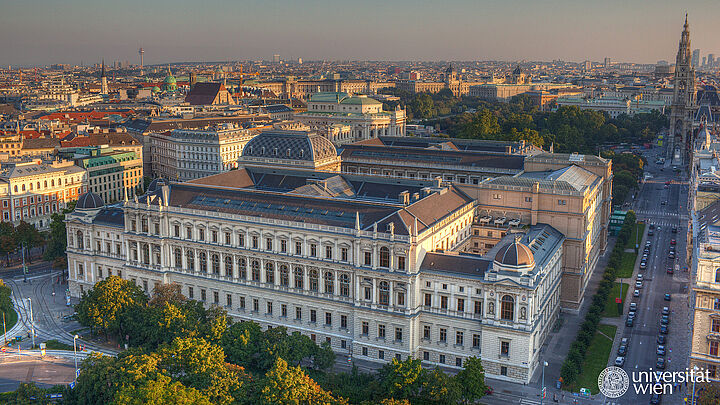Veranstaltungstipp
Dienstag, 02. April 2019, 18:00 - 19:30 iCal
Istanbul, 1914-1922
The Greeks of the City among shortage, hope and collapse.
Vortragende: Méropi Anastassiadou-Dumont (Paris INALCO / University of Geneve)
im Rahmen der GUNNAR HERING LECTURES
Institut für Byzantinistik und Neogräzistik der Universität Wien
Postgasse 7/1/3, 1010 Wien
Lecture
Istanbul’s population suffered a lot during the Great War. Sanitary problems, pauperization, mortality increase led to a serious deterioration of everyday life. For the Greeks, the massive flows of refugees – who either ran spontaneously away from active-hostilities zones or were deported by the Ottoman authorities – and the military mobilization – compulsory for all, Muslims and non-Muslims from 1908 onwards – were two major issues.
Paradoxically, in spite of difficulties, the Greek orthodox population of the City notably increased during the war (1914-1918) to the detriment of the Muslim element. After the Mudros Armistice (October 30, 1918), this demographically strengthened community could hope that the Ottoman Empire’s dismemberment would be confirmed and Constantinople would come back to the Greek fold.
To what extent was this “expectation” – that historiography mainly attributes to the elites – shared by ordinary people? Evidence on that matter is rather rare. A major part of this period’s published literature is made of propaganda texts, which promote “public opinions” constructed without taking into account those they were supposed to represent. The archives of Istanbul’s orthodox parishes, newspapers, literary magazines allow us to grab on-the-go this period of successive transitions during which huge hopes flourished in a context of extreme misfortune.
Speaker:
Méropi Anastassiadou-Dumont studied law at the Aristoteles University of Thessaloniki (Greece). She studied for her PhD at the University of Sorbonne (Paris I) and the École des Hautes Études en Sciences Sociales (EHESS), where she wrote a thesis on urban and social changes in Ottoman Salonica during the 19th century. „Salonique 1830-1912. Une ville ottomane à l’âge des reformes“ was published in French in 1997 and translated in Turkish in 2001 (2nd edition 2010) and Greek (2008). She is a professor at the Institut National des Langues et Civilisations Orientales (Paris INALCO) and the University of Geneva. She has published widely on subjects of late Ottoman History and has edited numerous collective volumes. Her research focuses on urban spaces and societies of the Eastern Mediterranean in the 19th and 20th century. Her most recent monographs include „Les Grecs d’Istanbul au XIXe siècle. Histoire socioculturelle de la communauté de Péra“, Leiden-Boston 2012 and „Salonique au XIXe siècle. Regards sur les gens ordinaires“ Istanbul 2016.
Gunnar Hering Lectures
Gunnar Hering (Dresden, 2 April 1934 – Vienna, 22 December 1994) was a prominent historian of South East Europe. Having held various academic positions in Mainz, Freiburg im Breisgau and Göttingen, Hering eventually became the first Professor of Modern Greek Studies
at the University of Vienna in 1983. Known as a specialist in Greek and Bulgarian cultural history and church history as well as in the history of political parties in South East Europe, with excellent skills in a number of East and South East European languages and cultures, Hering decisively opened his field of study to interdisciplinary and
transnational approaches. He developed several research projects dedicated to the travel literature and conceptual history of modern South East Europe. With this lecture series, we honour his memory and wish to promote a lively academic dialogue on Greek and South East European history.
Zur Webseite der Veranstaltung
Veranstalter
Kontakt
Petra Greger
Institut für Byzantinistik und Neogräzistik
Historisch-Kulturwissenschaftliche Fakultät
4277 41001
petra.greger@univie.ac.at
Erstellt am Donnerstag, 21. M�rz 2019, 11:17
Letzte Änderung am Montag, 25. M�rz 2019, 09:43

